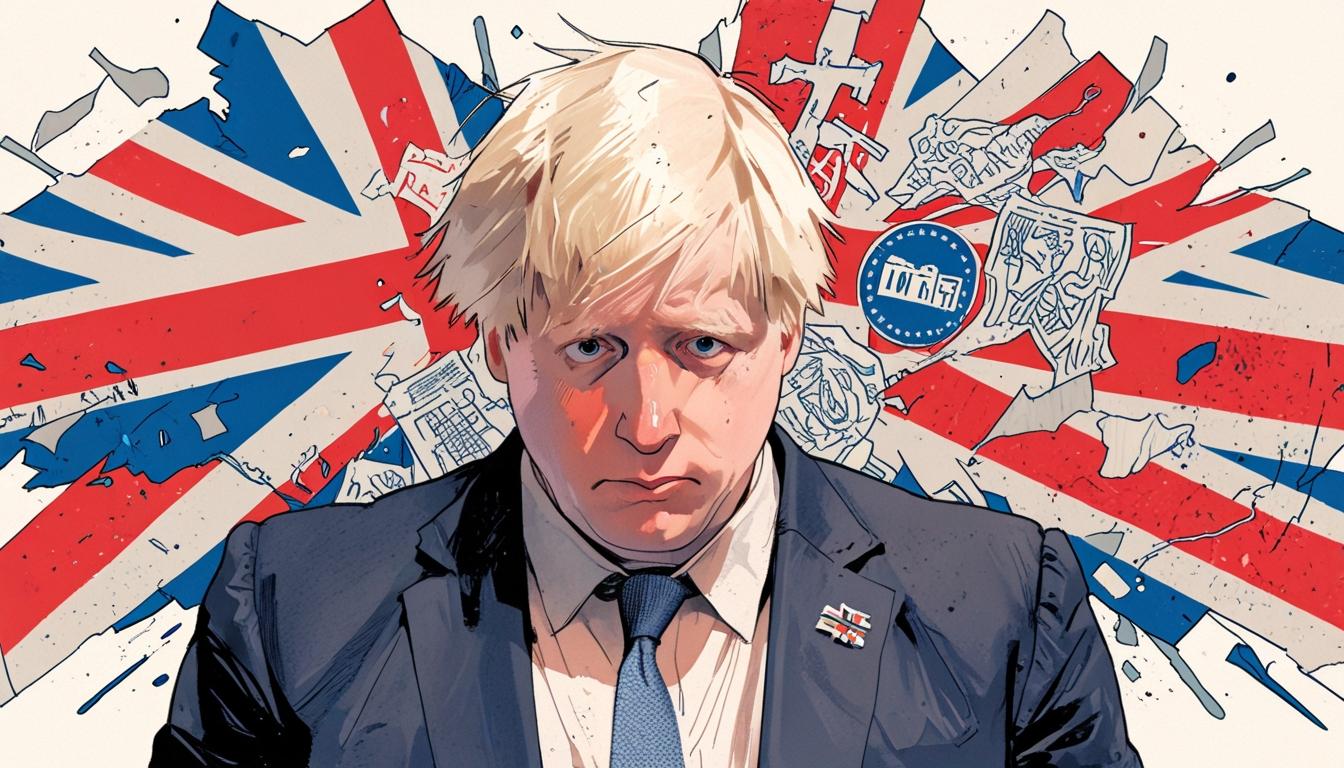Boris Johnson: The Tories' Struggles and the Rise of a New Political Force
Boris Johnson, the former Prime Minister of the United Kingdom, recently addressed the Conservative Party's significant challenges in an interview with GB News. He confessed that the Tories are “in a tough spot” after a dismal round of local election results. However, his optimism for the party's comeback seems misplaced amid an evolving political landscape dominated by rising dissent and a surge of new voices demanding change.
The Conservatives faced a particularly grim election cycle, losing all 15 councils they were defending. This catastrophe comes as the party grapples with pressures from new political forces, most notably from an emerging party that has capitalised on widespread voter dissatisfaction. This new contender has seized over 600 council seats, sharply highlighting a growing discontent with traditional politics. In stark contrast, the Conservatives suffered a staggering loss of 676 seats, painting a bleak picture of their current standing.
Johnson’s unwavering support for Kemi Badenoch, the party’s new leader, rings hollow in the face of mounting crises. He describes her as “the most original thinker” among political leaders but fails to acknowledge the urgent necessity for transformative policy that resonates with the electorate's reality. Badenoch herself recognised the daunting task ahead, stating that the Conservatives have "a big job to do to rebuild trust with the public," a sentiment that underscores a deep rift between the party and its former base.
This election cycle has illustrated that both major parties are struggling to maintain public confidence. Labour, under the leadership of Sir Keir Starmer, also lost ground in the recent elections, shedding 186 council seats amid mounting doubts about their policy effectiveness. The electorate's growing concerns over economic stagnation and deteriorating public services only fuel discontent, presenting an opportunity for new political narratives to gain traction.
The surge of the new political entity has not only siphoned votes from the Conservatives; it has emerged as a formidable alternative to the traditional parties. Recent forecasts indicate that this insurgent group is poised to attract a national vote share of approximately 30%, representing a serious challenge to both the Conservatives and Labour alike. The robust performance of this party may very well reflect a broader populist shift in the UK, echoing similar trends across Europe and signalling the potential reshaping of political alliances.
Moreover, the Liberal Democrats have also experienced gains, particularly in the southern regions, complicating the landscape further for both the Conservatives and Labour. As the political environment shifts, questions about the efficacy of the first-past-the-post electoral system grow ever more pertinent, especially as constituents increasingly demand representation that aligns with their views and needs.
The pressing challenge for the Conservatives remains the necessity to reconnect with their base. Johnson's confidence may resonate within certain Tory circles, but it is clear that the road to recovery is paved with the need for clear, pragmatic policies that directly respond to voter concerns. In facing economic turbulence and increasing competition from both established and emerging parties, Kemi Badenoch's leadership will be put to the test in the months leading up to the next general election.
As Johnson ponders the party's future, he embodies a strained sense of hope: “The Tories are going to recover. Of course they will." Yet, with the groundwork laid for significant change and the emergence of serious alternatives, the next few years will undoubtedly challenge this belief and reshape the UK’s political landscape in profound ways.
Source: Noah Wire Services
